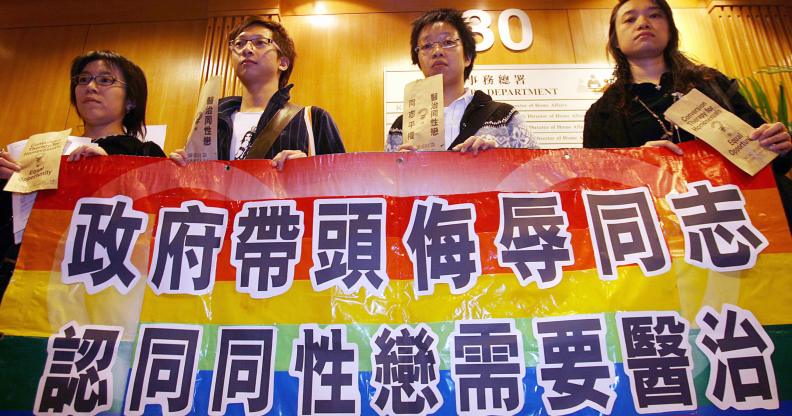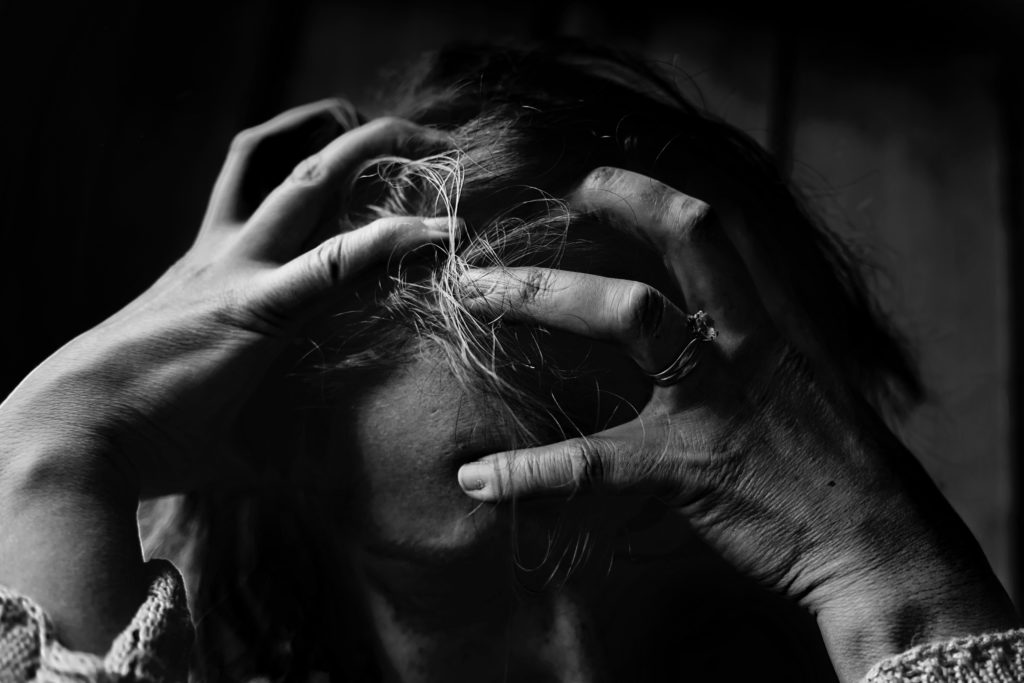A large number of LGBT people in China are being forced through traumatising conversion ‘therapy’

2006: Chinese protesters holding a banner that reads “Government leads campaign to insult gays and believes they need a cure” (MIKE CLARKE/AFP/Getty)
LGBT+ people in China are being forced to undergo so-called ‘conversion therapy’ in at least 96 public hospitals and unlicensed centres, according to a new human rights report.
The widely-discredited practise of conversion therapy is considered by medical experts to be pseudo-scientific and ineffective. It is often compared to torture and has been linked to higher risks of depression, suicide, and drug addiction in those who undergo it.
China removed homosexuality from its official list of mental disorders in 2001, but in the absence of a conversion therapy ban the practise has continued to thrive and is openly advertised on vans and billboards.
There are many different techniques, including electric shocks and testosterone injections, but no reliable scientific evidence that sexuality can be changed.
“It’s not just a commercial scam, but an action that violates people’s rights,” Wang Zhenyu of Equal Rights for LGBTI told Reuters.
Zhenyu compiled the report along with several other rights groups, questioning health departments in 25 cities that offer conversion therapy. In 17 cases, they found no evidence that any action had been taken against them.

Conversion therapy has been described as a form of torture (Pexels)
Four cities had punished medical institutions between 2017 and 2018 for practicing psychiatry without proper credentials, among them the capital, Beijing, and the southern city of Changsha in Hunan.
However, the majority were allowed to continue practising on vulnerable individuals, who were often pressured by their family to undergo damaging treatments, including shock therapy which is illegal.
This was seen by activist Peng Yanzi, who went undercover in a conversion therapy centre in 2014 and was forced to undergo electrotherapy. He then brought the case to court and won.
Two years later, a man sued a hospital in the city of Zhumadian where he had been locked up for 19 days while receiving therapy. In another case in July, a young transgender woman’s family committed her to a hospital against her will in the southern city of Jingdezhen.
China’s National Health Commission did not respond to Reuters‘ request for comment.

